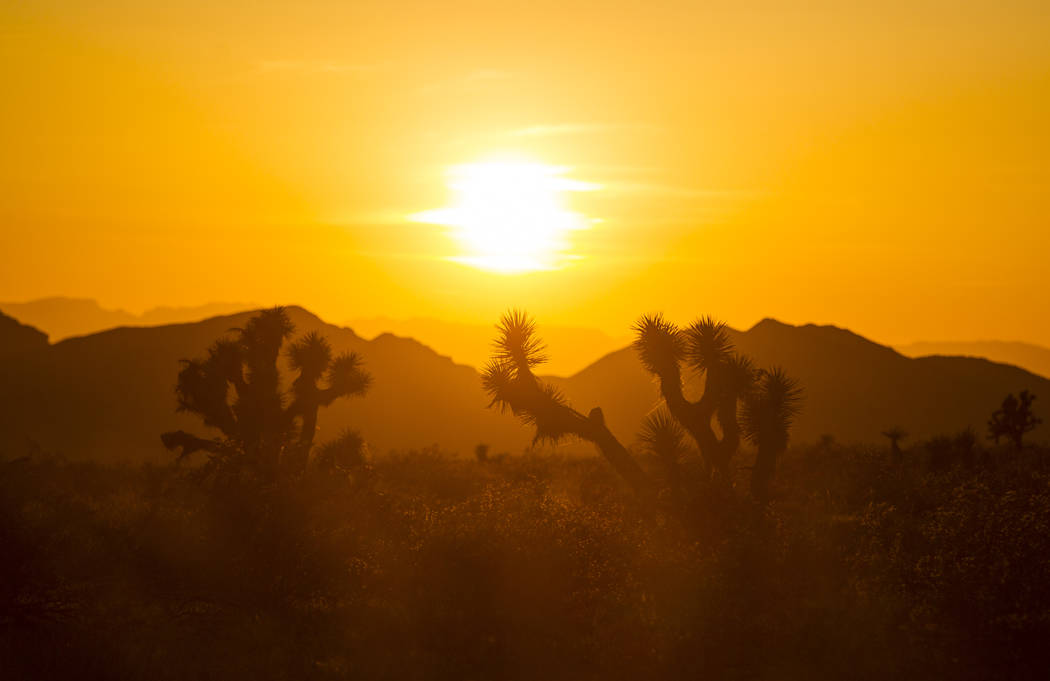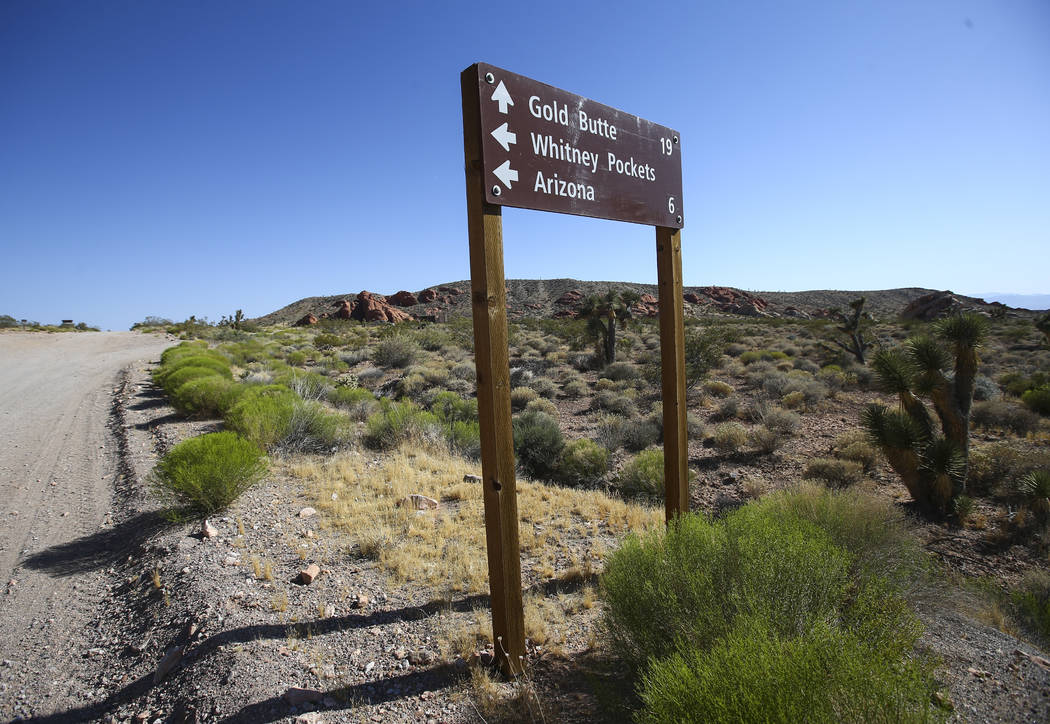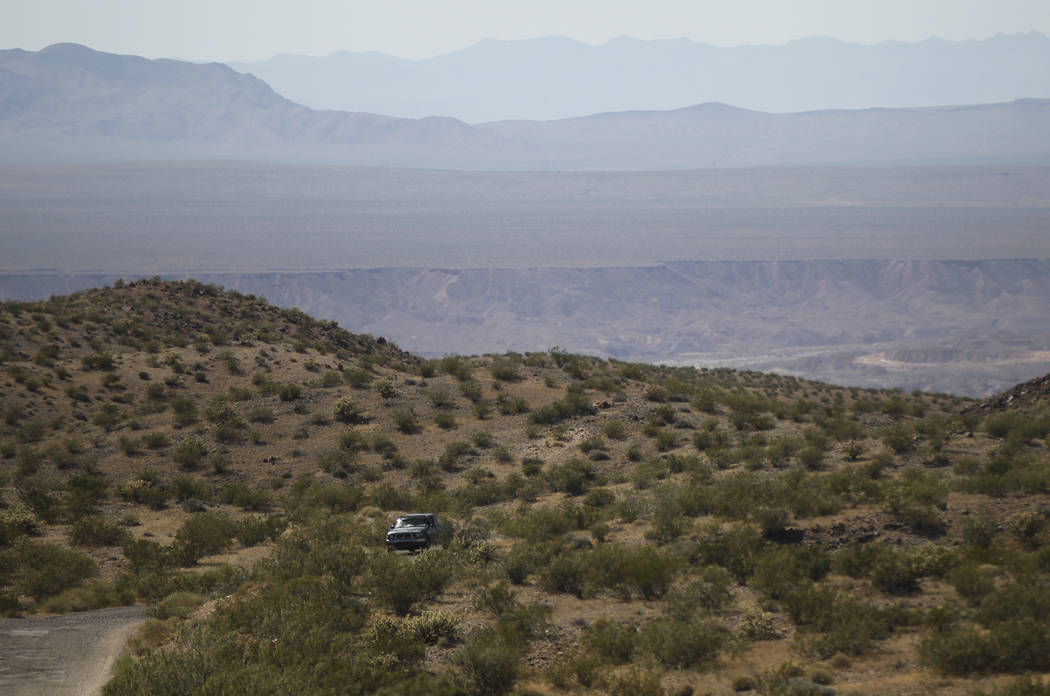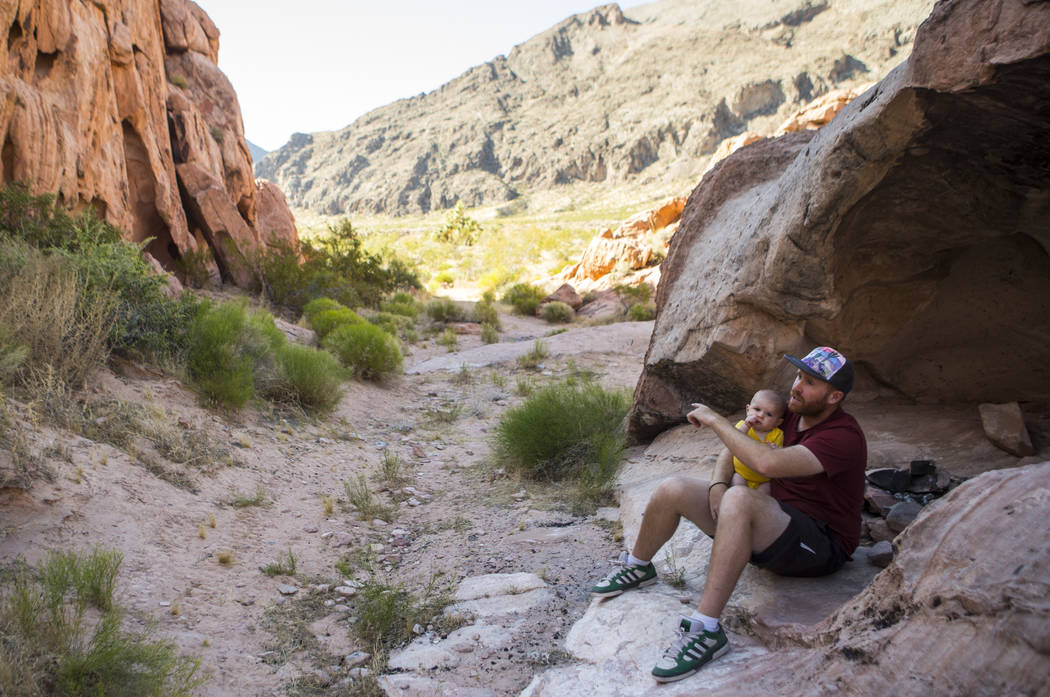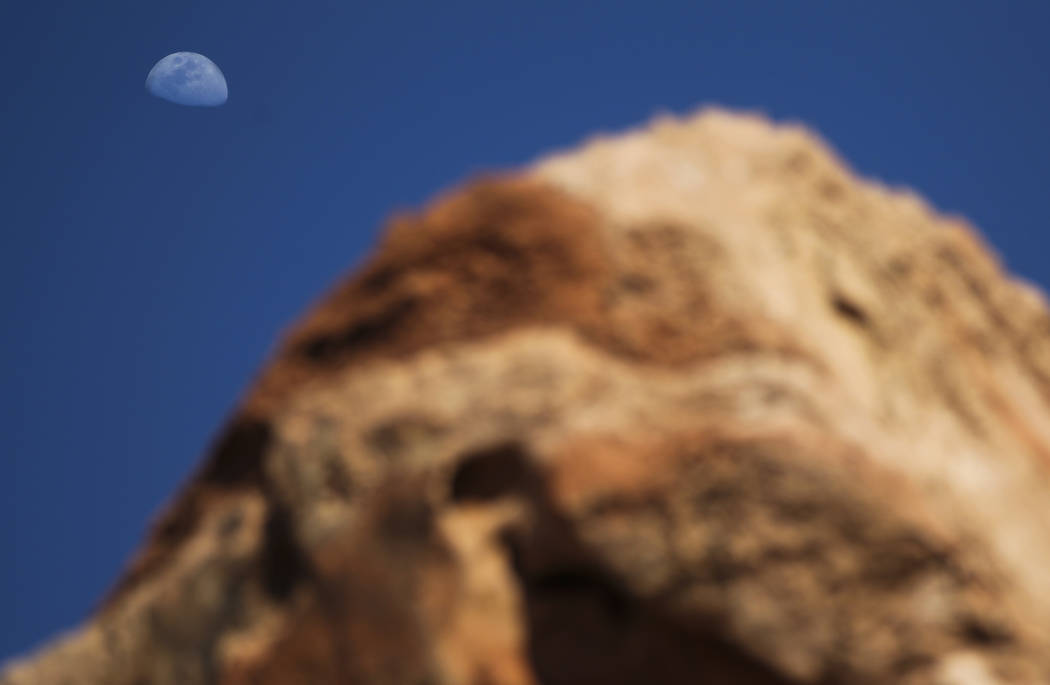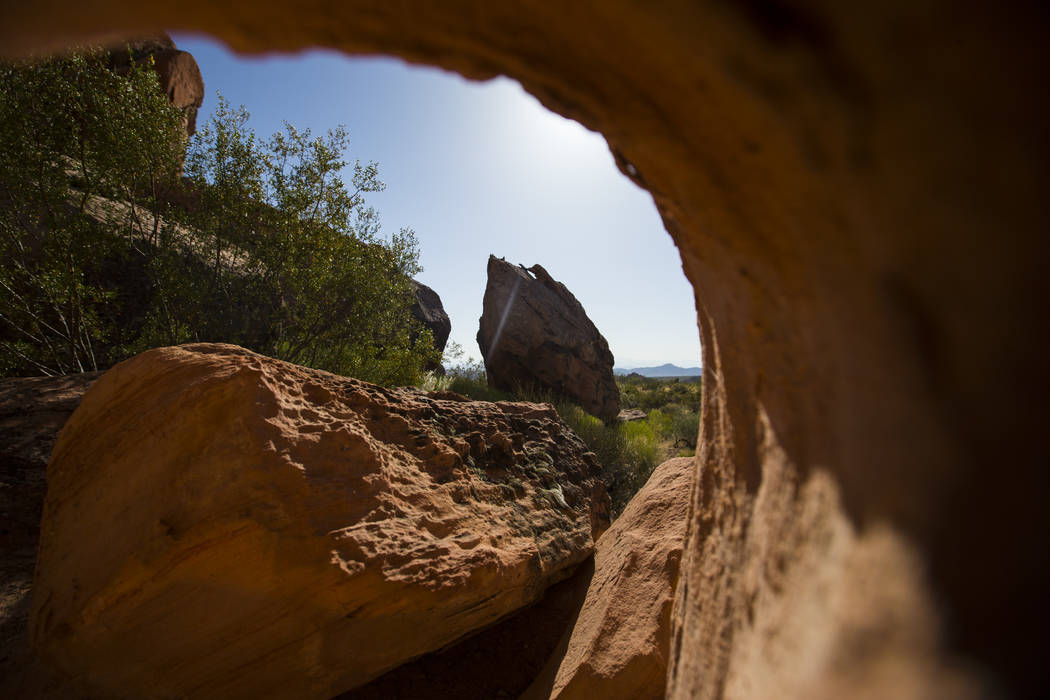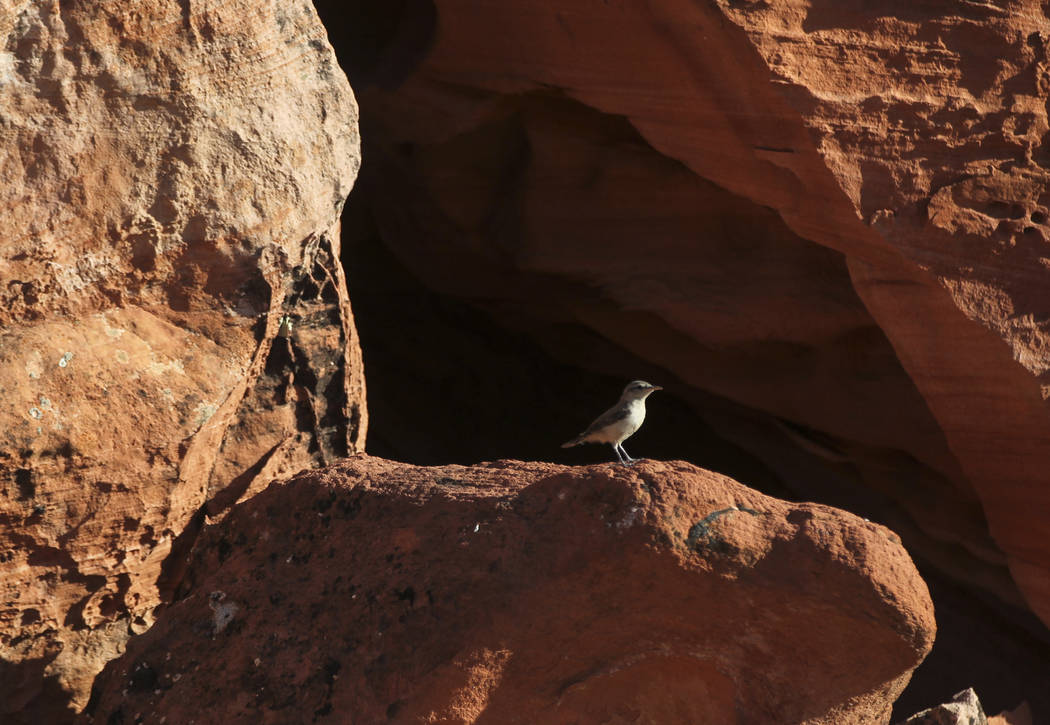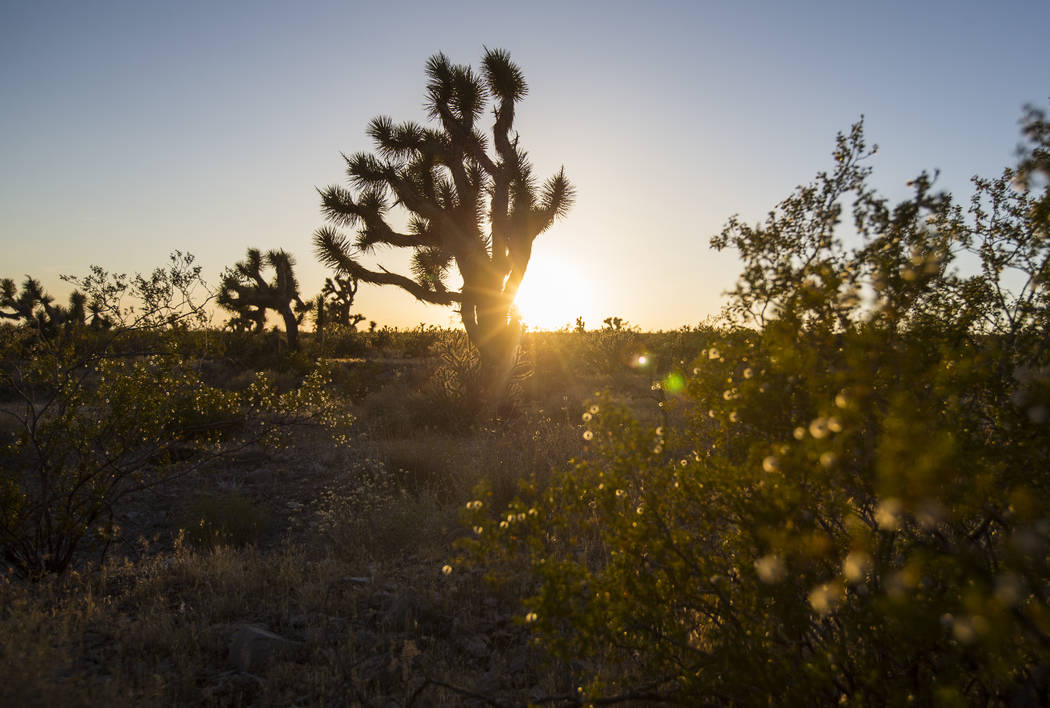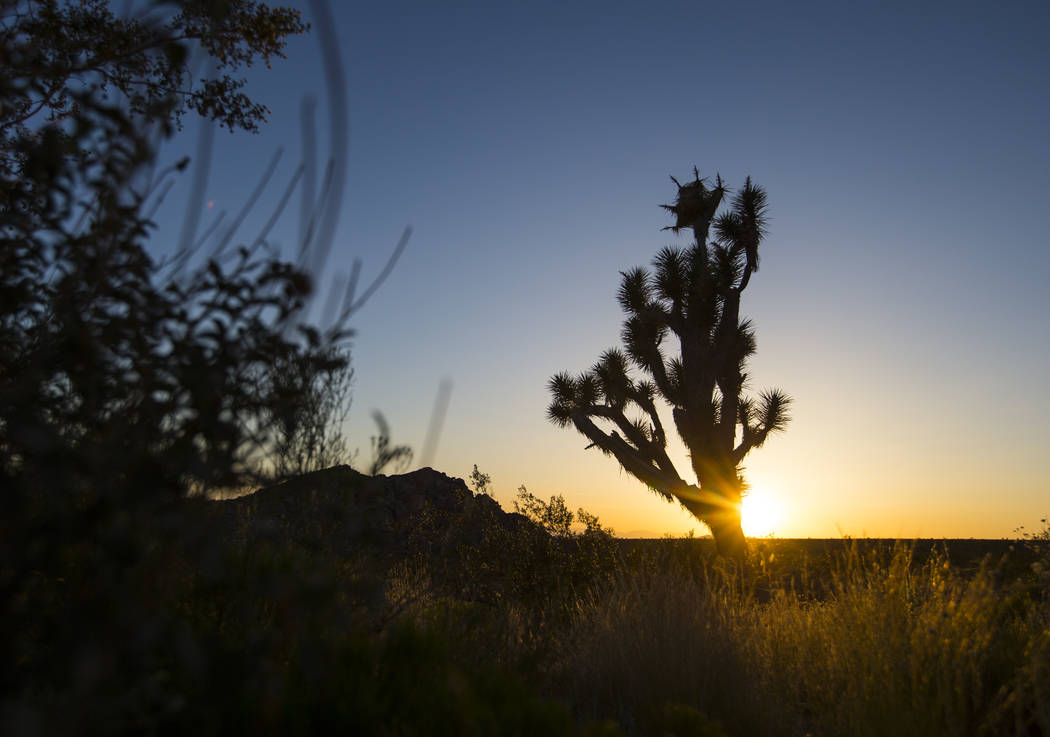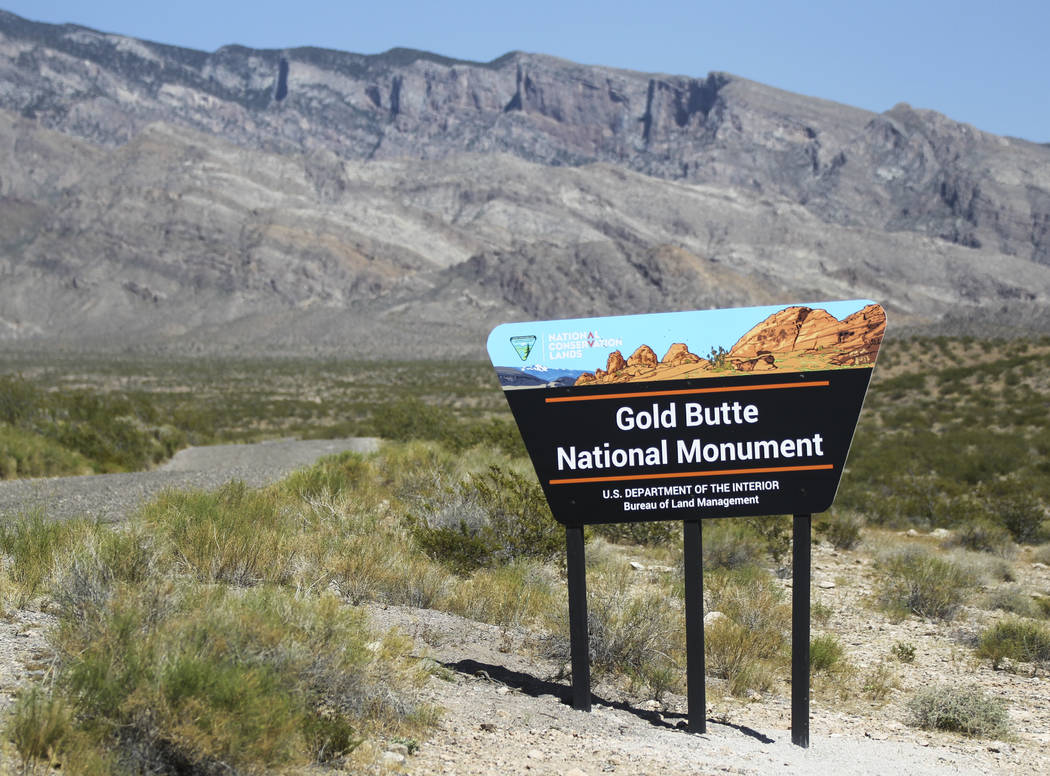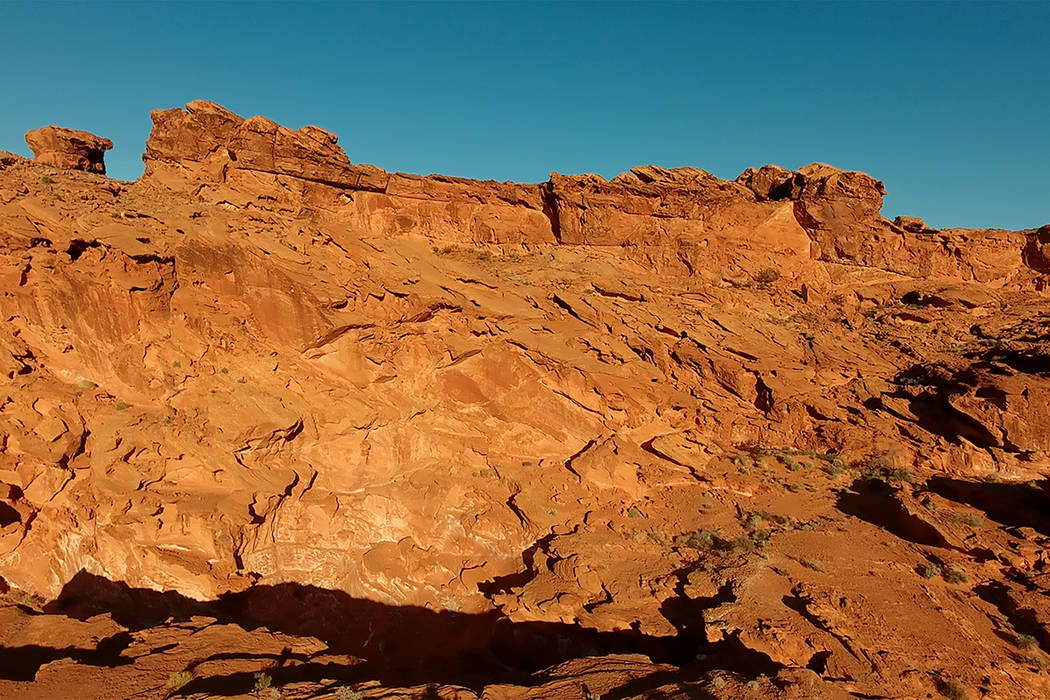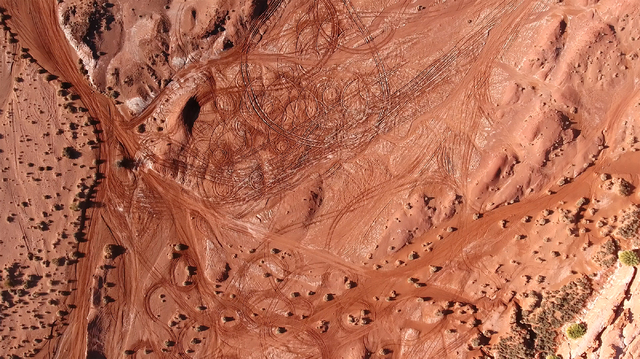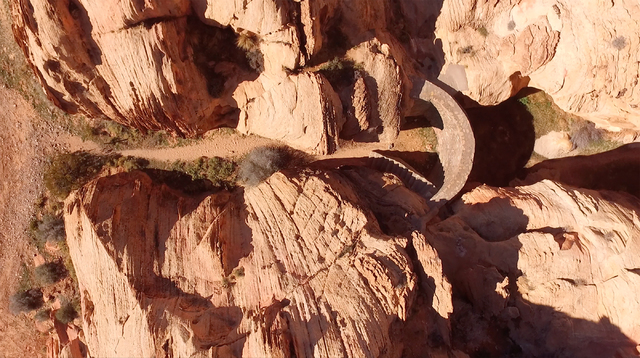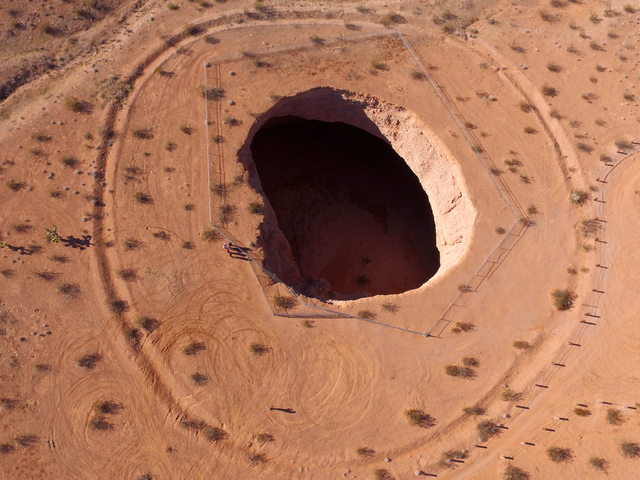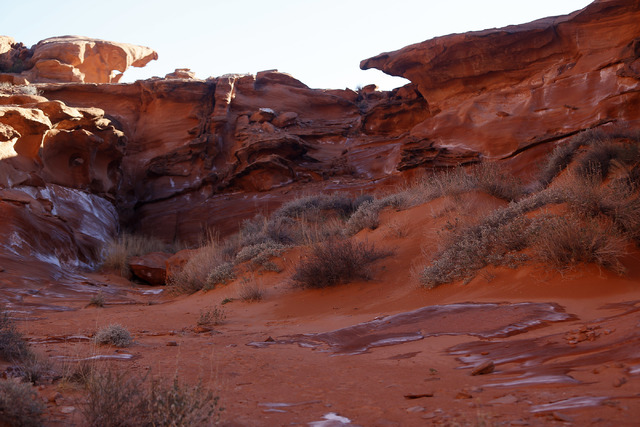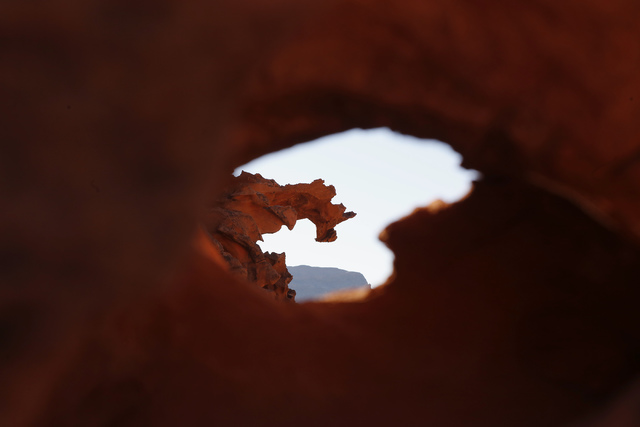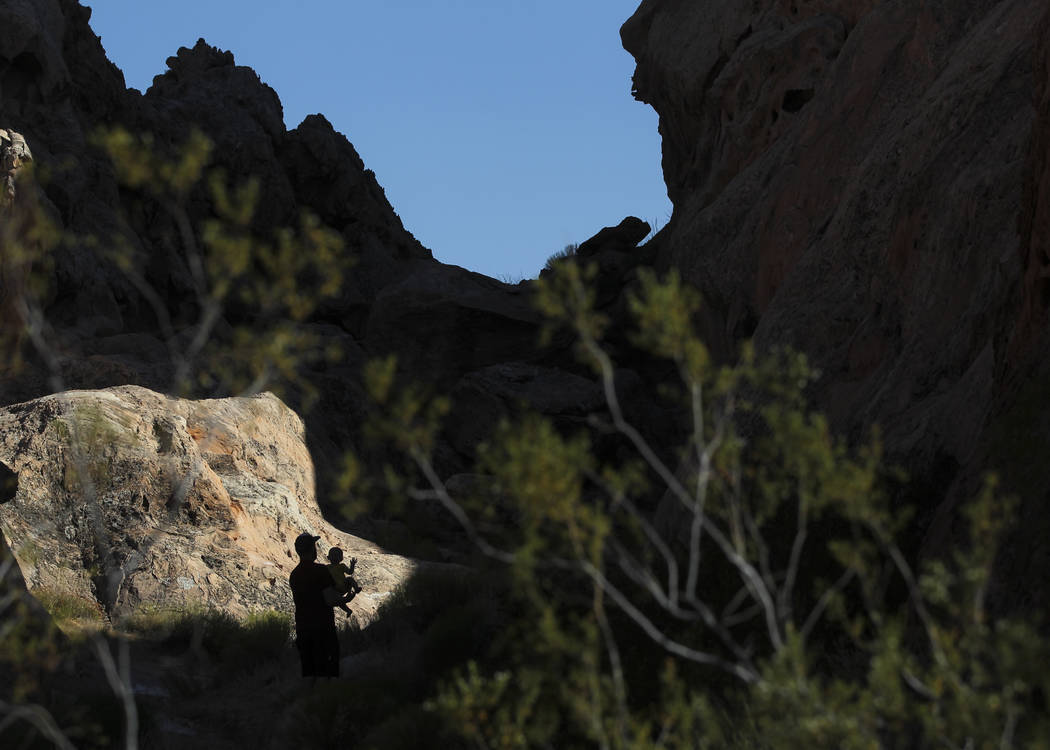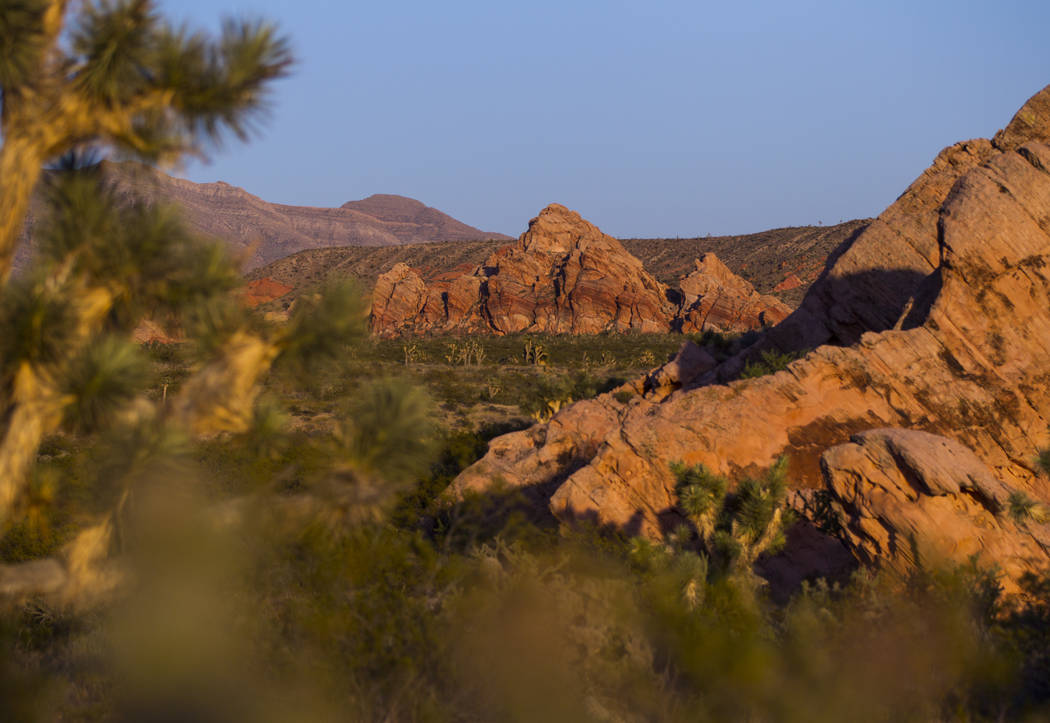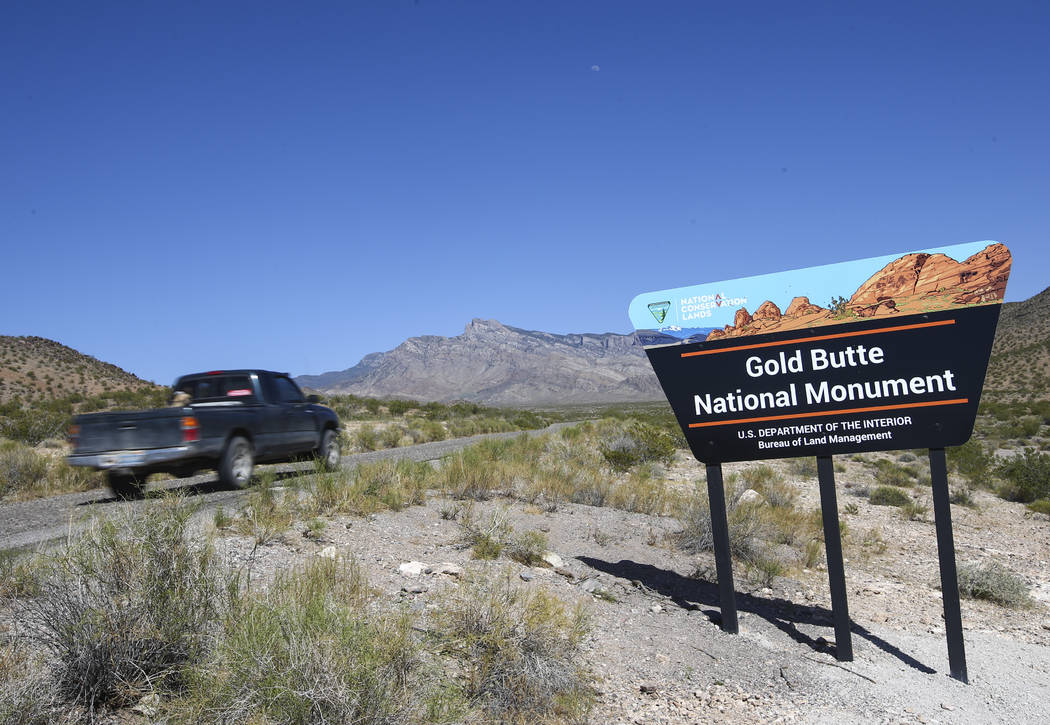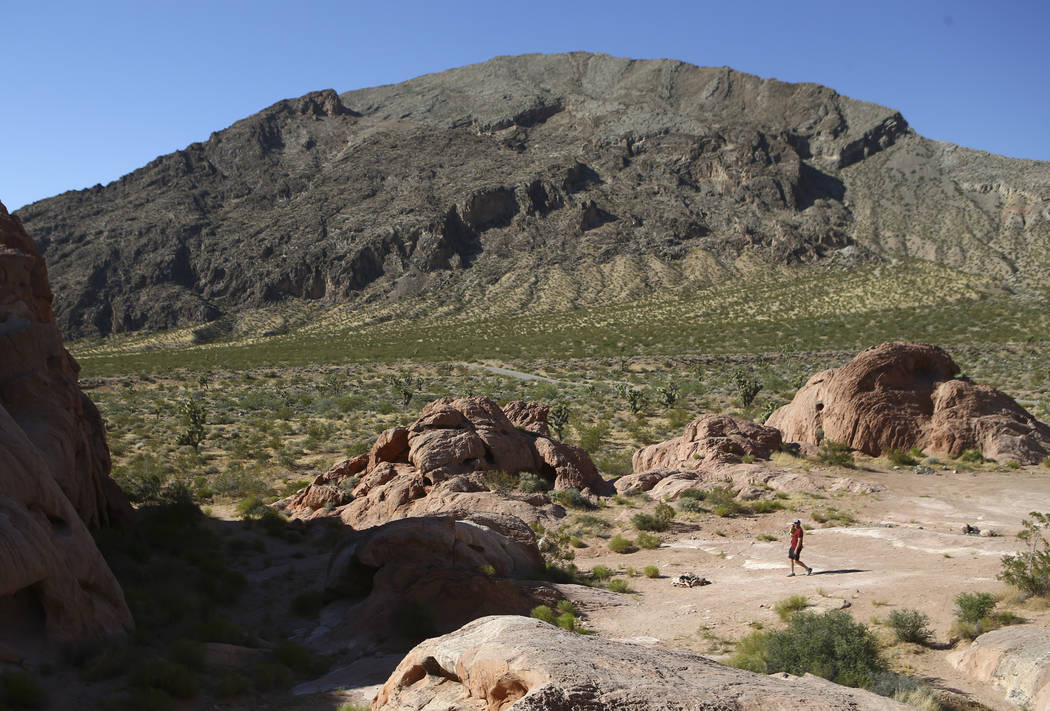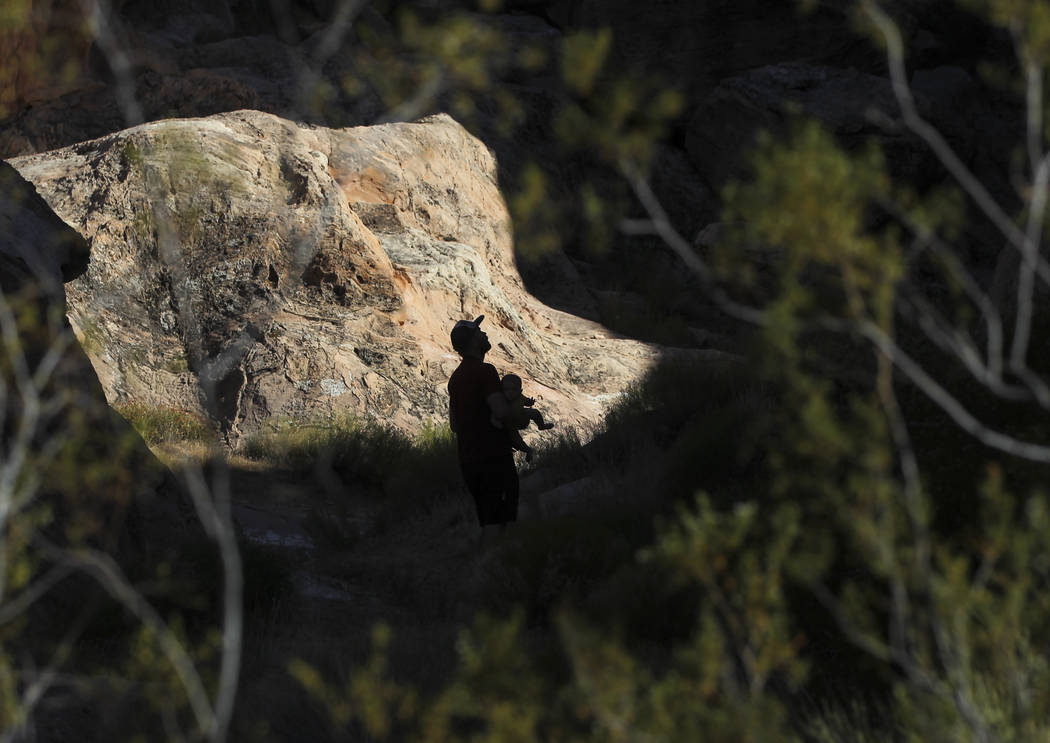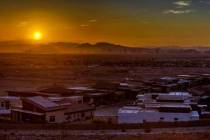Battle brewing over national monuments in Nevada, elsewhere
WASHINGTON — A battle is brewing among activists across the political spectrum over a Trump administration review of recently established national monuments, including Gold Butte in Nevada, and a 1906 law that permits presidential protection of public lands.
In the most recent salvo, 71 environmental and natural resource lawyers sent a letter to the administration saying a White House executive order that authorized the review incorrectly implied that President Donald Trump has the authority to rescind or modify national monuments created by previous presidents.
It does not, the lawyers insisted: “Congress retained that power for itself.”
But conservative groups like the Heritage Foundation and The Sutherland Institute argue Trump has the authority to manage public lands and reduce the size of national monuments, a practice that has occurred several times.
Interior Secretary Ryan Zinke is currently reviewing national monument declarations over the past 21 years to determine if presidents abused authority under the 110-year-old Antiquities Act to restrict commercial use of public lands with national monument declarations.
He has reviewed two monuments in Utah, including the 1.3 million-acre Bears Ears, and has pledged to come to Nevada, where Gold Butte and Basin and Range national monuments were established by President Barack Obama.
A Zinke spokeswoman said the secretary’s schedule for June is still being decided.
But during Zinke’s confirmation hearing, U.S. Sen. Catherine Cortez Masto, D-Nev., wrangled a pledge that he would visit Nevada before any recommendation on monuments was given to the president.
Support for the review
Conservatives applaud the review as a long overdue first step by Trump to roll back declarations by Presidents Obama and Bill Clinton that locked up lands and denied Western states and local communities economic opportunity from timber, grazing and energy.
“With nearly 85 percent of Nevada already owned by the federal government, unilateral land grabs by the executive branch should not be tolerated — regardless of who is in the White House,” said U.S. Sen. Dean Heller, R-Nev., who has introduced legislation to curtail declarations in the future.
The Heritage Foundation has urged Congress to repeal the Antiquities Act, claiming recent declarations have thwarted economic opportunity and removed states and private citizens from decisions made on land use. It also claims the intent of the Antiquities Act was to protect cultural artifacts that were being taken from lands at the turn of the century.
While conservatives argue that a president has broad power to manage public lands, the environmental lawyers said the authority of the president is narrow under the act.
“The plain text of the Antiquities Act makes this clear. The Act vests the president with the power to create national monuments but does not authorize subsequent modification,” their letter states.
Bret Birdsong, a professor at UNLV’s Boyd Law School, was appointed by Obama and served as deputy solicitor for land management resources in the Department of Interior. He worked on national monument declarations, although not Gold Butte.
Birdsong, one of the lawyers who signed the letter, said an opinion from the U.S. attorney general in 1938 and a U.S. Supreme Court decision have addressed the issue of presidential authority and the Antiquities Act.
The Supreme Court ruling in 1920 addressed the argument made by conservatives over land use today.
President Theodore Roosevelt used the Antiquities Act to make the Grand Canyon a national monument. It later became a national park. A man who had filed a mining claim in the Grand Canyon challenged the authority of Roosevelt. The Supreme Court shot that down.
“The Supreme Court looked at that 100 years ago and said it was bunk,” Birdsong said.
Uproar in Utah
Recent declarations in Utah have been fiercely attacked by state officials who argue that the designations in that state are crippling local economies by eliminating good-paying industry jobs and taking tax revenue away from communities that need it for schools.
The uproar has been loud in Utah.
“It’s not the flashpoint in Nevada as it has been in Utah,” Birdsong noted.
The Bureau of Land Management area that has been designated as Gold Butte National Monument was the site of the infamous standoff in 2014 between federal agents and the Cliven Bundy family.
But a public opinion poll conducted in 2017 for the Center for Western Priorities found 71 percent of Nevada voters supported the Gold Butte designation.
Rep. Jacky Rosen, D-Nev., toured Gold Butte this week. She said, “Thousands of visitors from across the country come to visit our state to enjoy our public lands.”
“This land should be available to be enjoyed by all,” Rosen said. “That’s why I strongly oppose efforts by the current administration and outside groups to revoke Gold Butte’s status as national monument.”
Rosen’s tour is preparation for defending Gold Butte from the pending administration review and possible proposals to change the designation.
Contact Gary Martin at 202-662-7390 or gmartin@reviewjournal.com. Contact @garymartindc on Twitter.
Nearby monuments
President Barack Obama designated Basin and Range National Monument on federal land 120 miles north of Las Vegas in July 2015. He followed that up in December 2016, a few weeks before leaving office, with declarations that established Gold Butte National Monument on 297,000 acres of federal land 100 miles northeast of Las Vegas and Bears Ears on 1.3 million acres in Utah.



